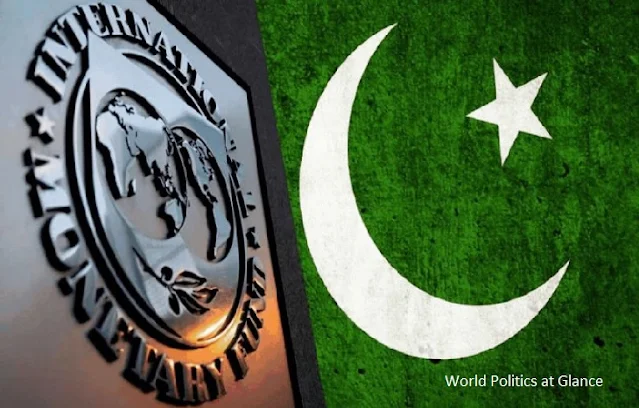 |
| Image Credit: Google |
IMF Predicts Gradual Return to 5% Growth in Pakistan
The
International Monetary Fund (IMF) has predicted that Pakistan's economic growth
is expected to gradually return to a potential five per cent in the medium
term.
This projection
is contingent on sustained policy and reform implementation and adequate
financial support from multilateral and bilateral partners.
Approval of $3 Billion Nine-Month Standby Arrangement
Last week, the
IMF's executive board green-lit a $3 billion nine-month standby arrangement
(SBA) for Pakistan to support the country's economic stabilisation programme.
The approved
bailout package amounts to $2.25 billion Special Drawing Rights (SDRs),
equivalent to about $3 billion, which represents 111 per cent of Pakistan's
quota.
Macroeconomic Outlook
A 120-page
country report released on Tuesday analyzed Pakistan's macroeconomic outlook.
The IMF
foresees growth picking up moderately in the current fiscal year, reaching 2.5
per cent.
However,
sustained recovery may take time due to unwinding the tight management of
imports, external challenges, and the need for tight macro policies.
Inflation and Fiscal Outlook
The IMF expects
headline inflation to remain lower from June onwards due to base effects from
the previous year's increase in fuel and electricity prices.
However, price
pressures are projected to remain elevated, with average headline inflation
expected to stay above 25 per cent in FY24.
The fiscal
space in Pakistan has been severely depleted, and substantial vulnerabilities
remain.
The IMF
recommends maintaining small primary surpluses in the coming years and making
strong revenue efforts to create space for priority social and development
spending.
Current Account Deficit and Debt Sustainability Risks
The current
account deficit (CAD) is projected to increase to around $6.5 billion in the
current fiscal year, and the IMF suggests that it should remain moderate at
around 2 per cent of GDP over the medium term.
The report
highlights risks to debt sustainability due to the scarcity of external
financing and large gross financing needs.
Policy Recommendations
The IMF
recommends broad-based reforms to improve Pakistan's fiscal framework, enhance
social spending, and boost structural reforms to lay the foundation for strong
and resilient growth.
It emphasizes
the importance of tighter monetary policy to reduce inflation and stabilize
expectations.
Additionally,
the report urges the end of administrative controls on the current account and
a return to a market-determined exchange rate to reduce external imbalances and
rebuild foreign reserves.
Addressing Structural Bottlenecks and Financial Stability
To resolve
long-standing structural bottlenecks, the IMF advises strengthening governance,
transparency, and efficiency of state-owned enterprises, boosting the business
environment, and enhancing job creation and investment.
It also
stresses the need to combat corruption effectively, bolster climate change
resilience, and ensure timely provision of key macroeconomic data.
Heightened
monitoring of financial stability risks and continued efforts to safeguard the
financial sector soundness and implement anti-money laundering measures are
also essential.
Analysis by Uzair Younus, Director of Pakistan Initiative
Political
economist Uzair Younus, director of the Pakistan Initiative at the Atlantic
Council's South Asia Centre, considers the IMF's report a "sobering
report on the state of Pakistan's economy and where it is headed."
He highlights
the significant gross external financing requirements projected for the next
three years and stresses the need for prudent policies to meet them.
Whoever is in
power for the next few years will face considerable challenges in navigating
the country's economic situation.
(Courtesy:
Dawn)
Post a Comment
0Comments